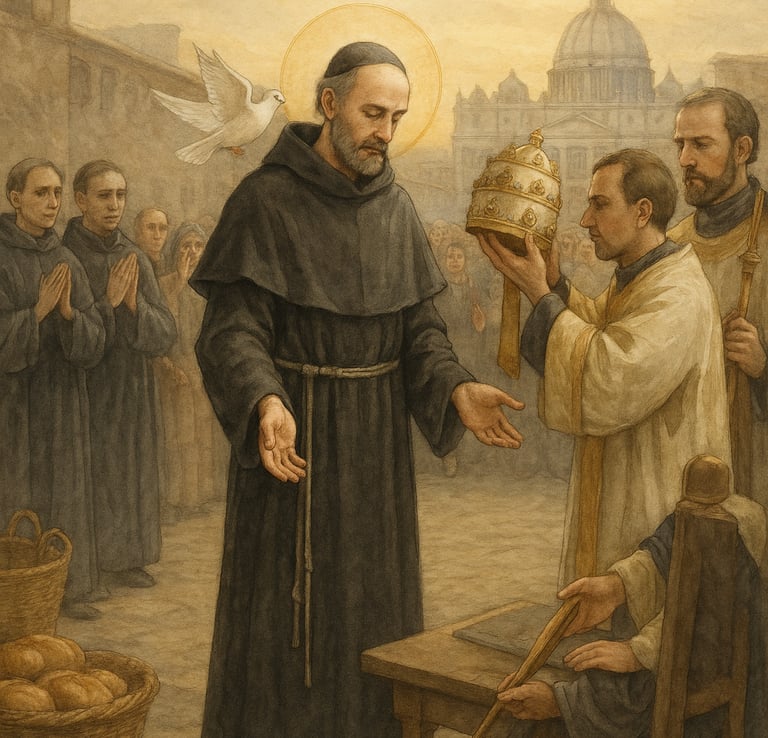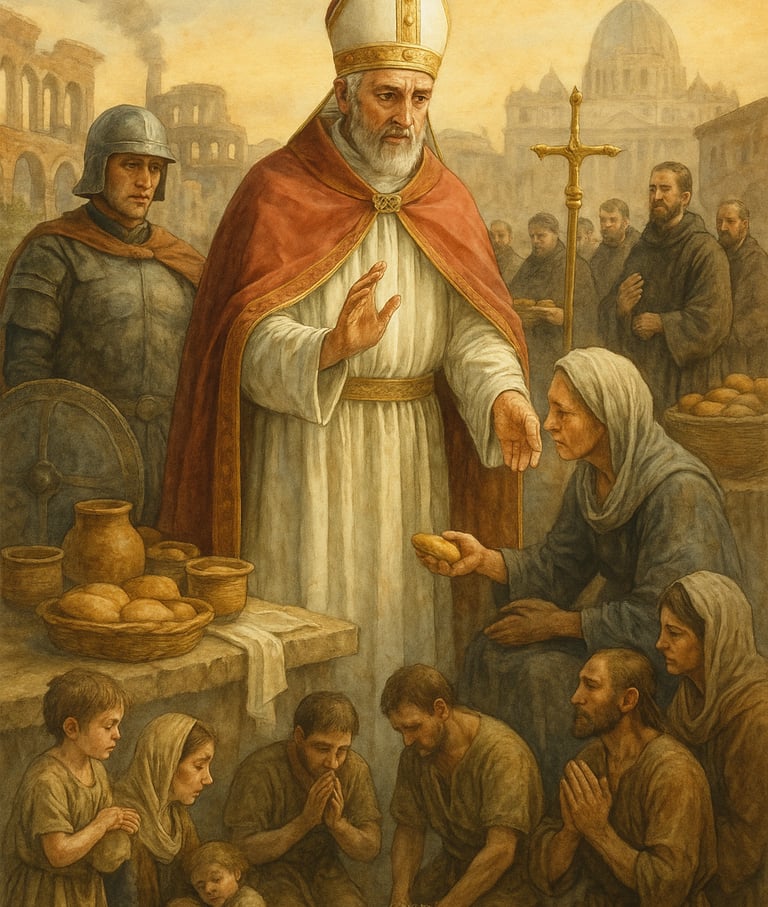Saint Gregory the Great: The Servant of the Servants of God
Feast Day: September 3 Patron of: Musicians, singers, teachers, students, popes, and invoked against plague
Halo & Light Studios
9/4/20252 min read


Click Link for a reel of Daily Dose of Saints and Faithful Art:
https://youtube.com/shorts/bS8YmfGKgdE
Fellow Pilgrims in Christ,
Few men have borne the weight of the papacy with as much humility and lasting influence as Pope Gregory the Great (c. 540–604). Born into a noble Roman family at a time when the old empire had crumbled and chaos ruled the Italian peninsula, Gregory could have pursued comfort and worldly power. Instead, he laid it all aside to serve God as a monk. The path of hidden prayer, however, would lead him to become one of the Church’s greatest shepherds.
Gregory’s early career brought him prestige—he rose to become Prefect of Rome, the highest civic office in the city. But his soul longed for more than politics. He sold his estates, gave generously to the poor, and transformed his family villa into a Benedictine monastery. There, clad in the black habit of a monk, he immersed himself in Scripture, prayer, and penance. Yet God had greater plans. In 590, amid plague, famine, and the Lombard threat, Gregory was called forth from his beloved cloister to be Bishop of Rome.
As pope, Gregory exemplified the title he chose for himself: Servus servorum Dei—Servant of the Servants of God. He personally organized food relief for the starving, ransomed captives from barbarian hands, and defended Rome against invading armies. His pastoral heart reached far beyond the city’s walls—he sent St. Augustine of Canterbury and his monks to evangelize the Anglo-Saxons in England, planting seeds of faith that would grow into a flourishing Christian culture.
Gregory was also a man of the pen. His Pastoral Rule remains one of the Church’s great guides for bishops and pastors, stressing humility, vigilance, and the care of souls. His Dialogues presented vivid accounts of Italian saints, including the life of St. Benedict of Nursia, inspiring countless monks and lay faithful. Tradition also remembers him as a guardian of sacred worship, lending his name to the sublime strains of Gregorian Chant that continue to lift hearts toward heaven.
Gregory died in 604, worn out from years of service, yet leaving behind a legacy that shaped the medieval Church. His combination of practical governance, missionary zeal, and deep humility earned him the rare title of “the Great.” To this day, his words echo in every papal signature that still bears his chosen humility: Servant of the Servants of God.
Saint Gregory the Great calls us to live our faith with both prayerful depth and practical charity—to be contemplatives who also act, monks at heart who never neglect the needs of the world.
“The proof of love is in works. Where love exists, it works great things.” – St. Gregory the Great


